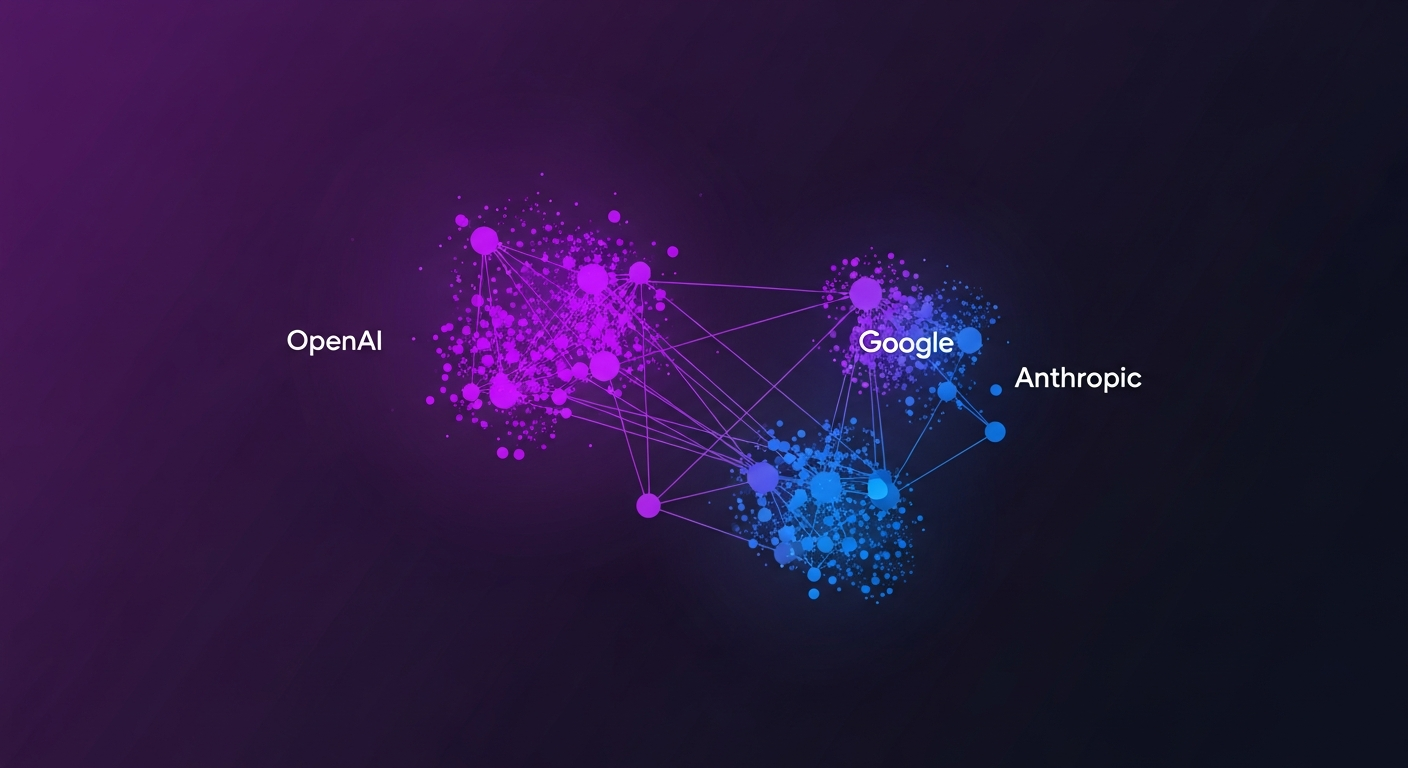If you're building with AI APIs, you've probably noticed that costs can add up quickly. The difference between providers can mean hundreds or even thousands of dollars per month. In this guide, we break down the exact pricing for every major model so you can make an informed decision.
The Complete Pricing Table
Here's what each provider charges per 1,000 tokens (roughly 750 words) as of November 2025:
| Provider / Model | Input (per 1K) | Output (per 1K) | Best For |
|---|---|---|---|
| Google Gemini 2.0 Flash | FREE | FREE | Testing, low-volume apps |
| Google Gemini 1.5 Flash | $0.000075 | $0.0003 | High-volume, cost-sensitive |
| OpenAI GPT-4o Mini | $0.00015 | $0.0006 | Balanced cost/quality |
| Google Gemini 1.5 Pro | $0.00125 | $0.005 | Complex reasoning |
| OpenAI GPT-4o | $0.0025 | $0.01 | High-quality responses |
| Anthropic Claude 3.5 Haiku | $0.0008 | $0.004 | Fast, efficient tasks |
| Anthropic Claude 3.5 Sonnet | $0.003 | $0.015 | Coding, analysis |
| Anthropic Claude 3 Opus | $0.015 | $0.075 | Most complex tasks |
| OpenAI GPT-4 Turbo | $0.01 | $0.03 | Legacy applications |
Key Takeaways
1. Google Gemini is the cheapest option
Google's Gemini 2.0 Flash is currently completely free during its experimental phase. Even the paid Gemini 1.5 Flash is 2x cheaper than OpenAI's cheapest model. If cost is your primary concern and you don't need the absolute best quality, Gemini should be your first choice.
2. OpenAI GPT-4o Mini offers the best balance
For applications that need reliable quality at a reasonable price, GPT-4o Mini hits the sweet spot. It's 17x cheaper than GPT-4 Turbo while delivering similar performance for most tasks.
3. Claude excels at specific tasks
Anthropic's Claude models are particularly strong at coding and long-form content. Claude 3.5 Sonnet is widely considered the best coding assistant, making its slightly higher price worth it for developer tools.
4. Premium models are rarely necessary
GPT-4 Turbo and Claude 3 Opus are 10-20x more expensive than their smaller siblings. Unless you're doing cutting-edge research or need maximum capability, you're likely overpaying with these models.
Real Cost Example
A chatbot handling 100,000 messages/month (avg 500 tokens each) would cost:
- Gemini 2.0 Flash: $0 (free tier)
- GPT-4o Mini: $7.50/month
- Claude 3.5 Sonnet: $150/month
- GPT-4 Turbo: $500/month
That's a 67x difference between the cheapest and most expensive options.
The Smart Approach: Automatic Routing
Here's the thing: you don't have to choose just one provider. The smartest approach is to use a routing service that automatically picks the cheapest available provider for each request.
This is exactly what TokenSaver does. When you send a request:
- We check current pricing for all providers
- We route your request to the cheapest one that's available
- If that provider fails, we automatically fall back to the next cheapest
- You get the same response format regardless of which provider handled it
The result? You save 80-90% compared to using a single premium provider, while maintaining reliability through automatic fallbacks.
When to Use Each Provider
Use Gemini when:
- Cost is the primary concern
- You're building MVPs or prototypes
- You need high volume at low cost
- Quality requirements are moderate
Use OpenAI when:
- You need consistent, reliable responses
- You're building customer-facing applications
- You need strong instruction following
- You want the widest ecosystem of tools
Use Anthropic when:
- You're building coding or developer tools
- You need long-form content generation
- Safety and alignment are critical
- You need strong reasoning capabilities
Conclusion
The AI API market is more competitive than ever, which is great news for developers. You no longer need to pay premium prices for quality responses. By understanding the pricing landscape and using smart routing, you can cut your AI costs by 80-90% without sacrificing capability.
Start Saving on AI Costs Today
Try TokenSaver free for 30 requests. No credit card required.
Get Started Free